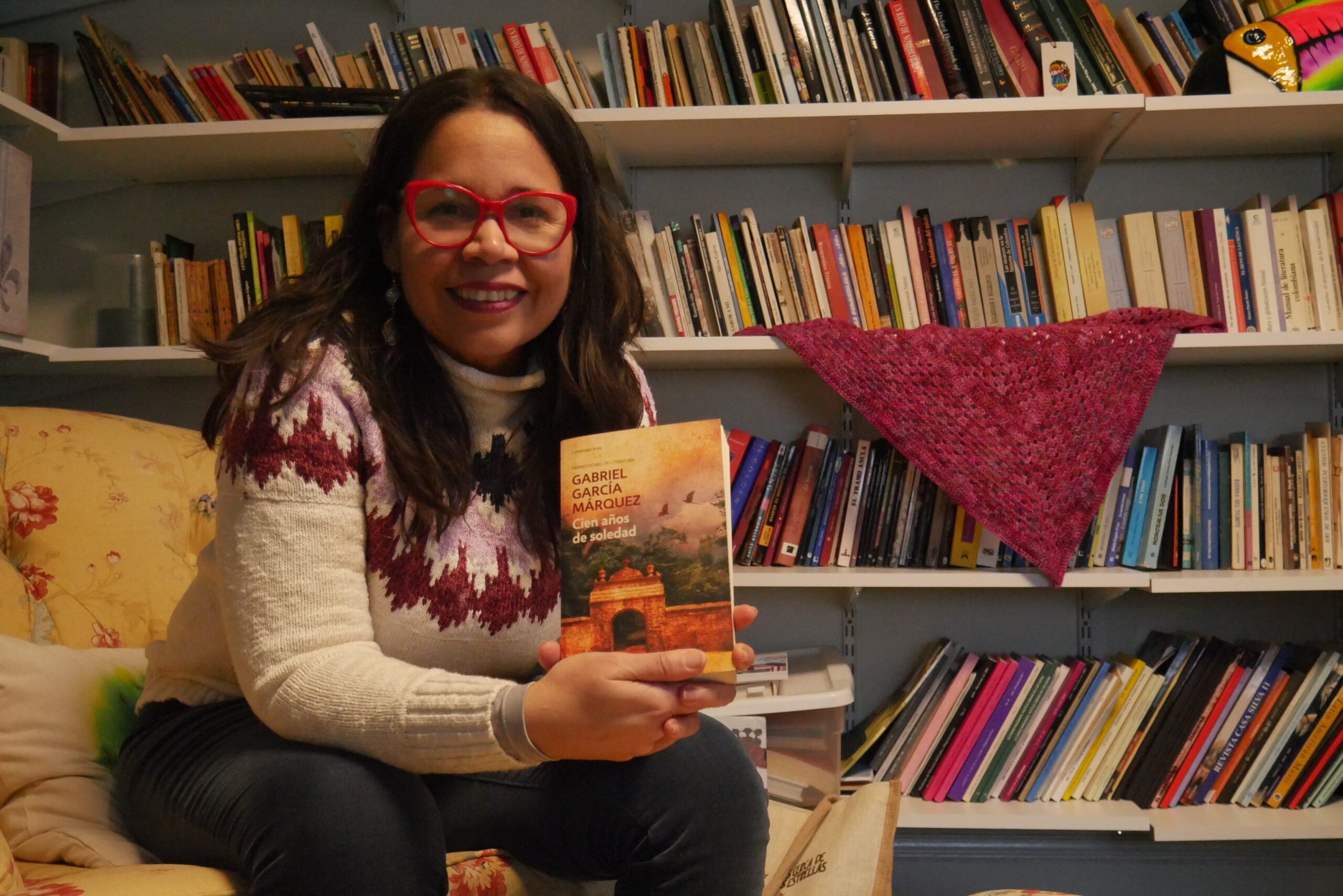Celis launches “One Hundred Years of Solitude Together” podcast to acclaim
January 24, 2025
 Isa Cruz
Isa CruzWhen Netflix announced a television adaptation of Gabriel Garcia Marquez’s famous work “One Hundred Years of Solitude,” many fans of the book were excited to see characters they had read about brought to life in a modern rendition.
Professor of Romance Languages and Literatures and Latin American, Caribbean, and Latinx Studies Nadia Celis had a very different reaction.
“I felt like something really personal was about to be taken away from me. I had lived with those characters in my mind for so long, and all of the sudden they would be given a face and body, [and] it wouldn’t be mine,” Celis wrote in an email to the Orient.
Celis had taught “One Hundred Years of Solitude” in Bowdoin classes for years, witnessing its profound impact on many of her students. However, people she encountered outside of the classroom often mentioned how intimidating it could be to read a novel with many generations of similarly-named characters and such a layered and intentionally cyclical narrative.
After some reflection, Celis decided she would respond to the current cultural moment sparked by the Netflix series by creating a podcast exploring the novel. She chose to separate her episodes by theme rather than by chapter, with eight total episodes each corresponding to important themes. Her classroom experience influenced her work on the podcast.
“I [set out] to create an itinerary that, guided by me and the 21 guests that I aligned for the project, would take readers and listeners by each of the key stops in the story of the Buendía family and the Macondo village, and in the history of Colombia that is fictionalized in the novel,” Celis wrote.
Celis also added her own personal flair to the series with introductory statements in which she comments on her own relationship with the novel, both personally and professionally.
“[The essays] express why this novel is so important and personal to me as a Caribbean and a Colombian woman and scholar,” Celis wrote.
There are two official issues of the podcast, one conducted in English and another in Spanish. The English podcast is entitled “One Hundred Years of Solitude Together,” and the Spanish podcast is entitled “Cien años de soledad en compañía.”
While both podcasts were organized according to the same themes and often included the same guests, the conversations that Celis had on the two podcasts often went in very different directions. The reception has been warm to both podcasts, with the Spanish podcast currently receiving more listeners due to a robust marketing push by Celis’s Spanish-language team.
The podcast is part of a larger effort by Celis to increase access to public-facing humanities, with the goal of reaching audiences outside of academia.
“I believe in the power of stories, and I believe in the power to inform and even reshape reality. I also believe we must educate our students and also the general public on the importance of interpreting critically not only fiction but the stories that we encounter everyday. This was my chance to teach and model such critical reading with the help of a work that global readers are eager about,” Celis wrote.
Celis was quick to note the support she’s received from her guests, Bowdoin College and her English-language producer, Lisa Bartfai, who has also been helping Celis produce an upcoming podcast based on her book “Chronicle of a Terrible Love (Crónica de un amor terrible).”
“It was not an easy endeavor, though. I had never done many of the things required to make this project. I had to learn so much—from sound editing to marketing and social media—but it was a great experience because of my awesome team,” Celis wrote.
Something that is central to the podcast is how universal the novel is and how relevant it has remained.
“Every time I turn a corner—whether waiting at an airport or riding a train—somebody is reading the novel,” Celis wrote. “As soon as I mention the topic of the podcast, somebody tells me an anecdote, whether on their own reading or their wives or cousins. That is the power of this book. It speaks to many, and it speaks about many themes that we humans need to face sooner than later, so we do not repeat the self-defeating fate of the Buendía family.”
While the podcast stemmed from an initial reaction of shock, Celis’s overwhelming feelings regarding the project are much more positive.
“I just learnt that one of my first-year students—who is taking her first class with me this semester—listened to the whole eight-episode series of the podcast during a road trip with her family over the winter break,” Celis wrote. “That makes me feel very happy.”

Comments
Before submitting a comment, please review our comment policy. Some key points from the policy: